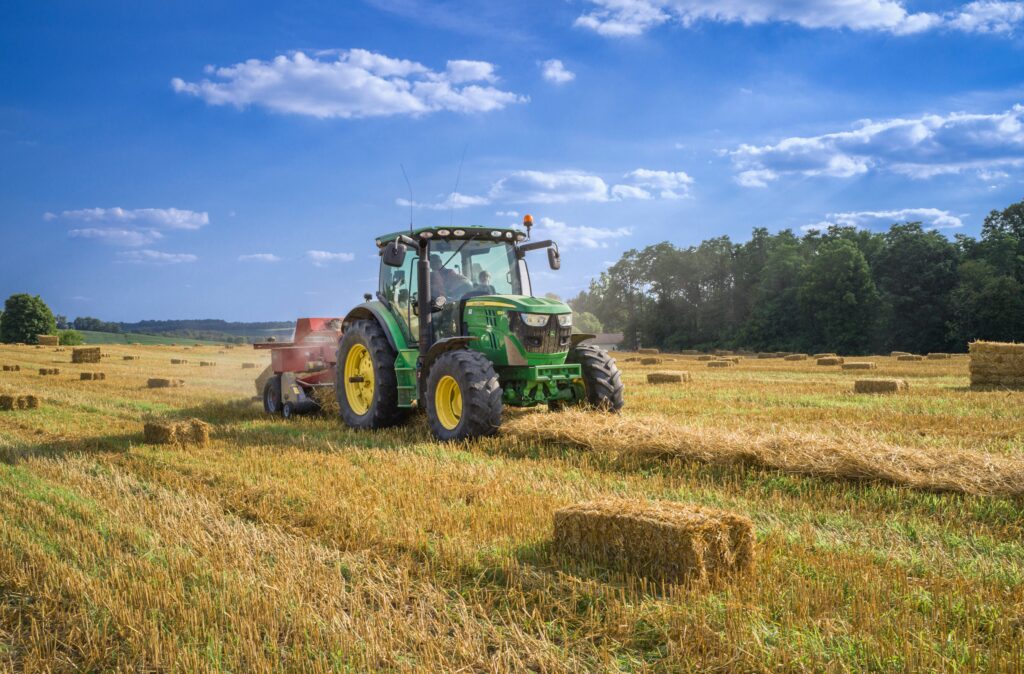Key Takeaways
- Agricultural business loans help farmers, horticulturists, and other agribusinesses pay for things like land, equipment, livestock, fertiliser, crops, and more.
- Agricultural loans can help pay for starting up, running, and growing a business. They can also help you update your equipment and processes to make them more efficient and improve the quality of your products.
- Loans can also act as a safety net that protects farmers from risks like droughts and pests.
- Lenders offer a range of agricultural loans that are made to meet the specific needs of the farming industry.
- People who need funds for big purchases can get term loans, and people who need money for everyday expenses can get lines of credit. Companies can also get funding to pay for invoices and equipment.
- Land value, cash flow projections, equipment needs, and past farming experience are all things that affect whether you can get an agricultural loan and what the terms will be.
- The Regional Investment Corporation's loan products and other government programmes are meant to help farmers and get them ready for droughts.
Agriculture is one of Australia’s most important industries, using up 55% of the country’s land. The industry has added more than $51 billion in gross value over the past ten years.
Getting into the farming business is not easy; it takes a lot of funding, among other things. Hard work and determination are important, especially when there are droughts, seasonal downturns, and changes in the market. Still, businesses in the agriculture sector are some of the least likely to go under. If you want to start an agribusiness, it’s a good idea that can be rewarding and profitable.
You can get different types of loans to help you reach your goal. These loans can help you with everything from buying land to paying for day-to-day business costs.
What are Agricultural Business Loans?
Farm loans, also known as agricultural business loans or ag loans, are loans that are made just for businesses that work in the agricultural sector. These loans are for farmers, horticulturists, viticulturists, apiculturists, aquaculturists, and other agricultural producers who need funding for their businesses.
When it comes to finances, the agricultural industry is different from other businesses. Seasonality, commodity prices, changing weather, and long production cycles are all things that can cause cash flow problems. Agricultural loans help fill in these gaps by giving funds for:
- Purchasing farmland or expanding acreage
- Livestock acquisition
- Planting/maintaining annual crops
- Equipment purchases (tractors, harvesters, irrigation)
- Operating expenses (fertiliser, seeds, pesticides, labour)
- Drought/disaster recovery and preparedness
Why Get an Agricultural Business Loan?
Agricultural loans play a vital role in supporting farmers and agribusinesses, offering the financial backing needed to keep operations running and drive growth. If you work in agriculture, here are some reasons why getting an agricultural loan might be a good idea:
- Startup: Agricultural loans help people who want to work in the industry by covering the high costs of starting a business and encouraging them to do so. Some loans are meant to help new and young farmers get started. This helps make sure that the industry will be around for a long time. These programmes may give you more than just money. They may also give you training and a mentorship.
- Expansion: Farmers can get loans to help them grow their businesses, buy more land, or try new things in farming. This could lead to more work and maybe additional revenue.
- Modernisation and Efficiency: Farmers can buy improved equipment, machines, and infrastructure that make their work more efficient and productive if they have sufficient funds to do so. These investments can lower costs and help get better yields by putting in better irrigation systems, buying new harvesting equipment, or building better storage facilities.
- Better Cash Flow: Agriculture is known for having problems with cash flow during certain times of the year. Loans can give farmers the working capital they need to deal with these periods. This means they can pay for things like seeds, fertilisers, and labour during planting seasons, even when their income is low.
- Risk Management: Agricultural loans can also help farmers manage risk by letting them keep working even when the weather is bad, pests are around, there is a drought, or the market changes.
- Better Quality and Sustainability of Products: Farmers can improve the quality of their crops and use more environmentally friendly farming methods when they have access to better resources and technology through financing.
- Economic Growth: Agricultural loans help the agricultural sector, which in turn helps the economy grow and stay stable in rural areas of Australia. They help create jobs, support rural communities, and make sure people have enough food.
Types of Agricultural Loans
Lenders offer a variety of agricultural loan products to fit different borrower needs and situations. Here are some loan products agribusinesses can obtain:
Term Loans
Traditional term loans provide a lump sum that’s repaid over a fixed term. These loans are usually for larger expenses, like buying farmland, buying livestock, or going for one-time agricultural investments.
Equipment Finance
Equipment financing helps businesses purchase new or used farm machinery like tractors, harvesters, trucks, and more. The equipment is usually considered the security for the loan. With equipment financing, agribusinesses can get equipment fast so they can start operations right away.
Specialised Agriculture Loans
Shop around for lenders that provide specialised loans for the purchase of livestock and crops. For instance, some lenders may provide short-term financing that can help cover the costs of planting and harvesting crops, which will then be repaid using the proceeds from crop sales. Some lenders may also provide financing for livestock, with the livestock considered as security for the loan.
Qualifications for Agricultural Loans
Lenders look at a number of key factors when deciding whether or not to approve an agricultural loan. These things vary by lender and loan type.
- Land Value/Assets: To get the loan, you may need to show the value of your farmland, equipment, buildings, and livestock. If a business has good soil and water access on its prime agricultural land, it may be more likely to get a loan.
- Farm Experience: Lenders like businesses that have a lot of experience running farms or those that have formal training and credentials in agriculture. If you’re a newer farmer, you might need to rely more on security to get approved or apply with a co-borrower who has more experience.
- Cash flow and income: Lenders may ask for tax returns, profit and loss statements, and cash flow projections to show that a business can pay back the loan.
- Creditworthiness and Financial History: Lenders will look at the applicant’s credit scores and other financial documents to see if they are creditworthy. Having solid credit and a good track record of managing money can make it more likely that your loan will be approved.
- Risk Management: Having plans in place to deal with climate, market, drought, or disaster risks is something lenders like to see when it comes to risk management.
Government Agricultural Lending Programs
In addition to commercial lenders, the Australian government provides affordable financing for farmers and agricultural businesses. Through the Regional Investment Corporation (RIC), the government provides different loan products, such as:
- Drought Loan: This loan helps agricultural businesses through drought preparation, management, and recovery.
- AgriStarter Loan: This loan is designed to help new farmers and support farm succession arrangements. Borrowers can get loan up to $2 million in funding with lower interest rates and repayment plans that fit their cash flow.
- AgBiz Drought Loan: Farm-related small businesses can use this loan to pay for operating expenses, like bills, payroll, and payments for contractors.
To be eligible for the government’s financing options, you must be:
- An Australian citizen or a permanent resident
- Contribute at least 50% of your labour to the farm business
- Earn or plan to earn at least 50% of your income from the business
- Operate as a sole trader, partnership, trust, or corporation in Australia with tax registration and ABN
- In an eligible agriculture or farm-related industry
Find Agricultural Loans for Your Business
Whether you need funds to purchase farmland and equipment or if you need to cover cash flow gaps, there are plenty of lenders that can help you. We at Dark Horse Financial can help direct you to the lenders that can give you the rates and terms that will best benefit your business. Contact us to know more.





